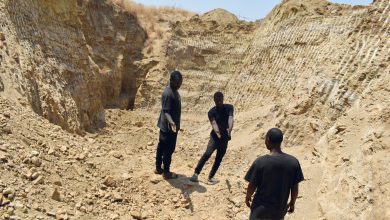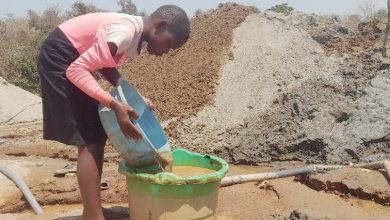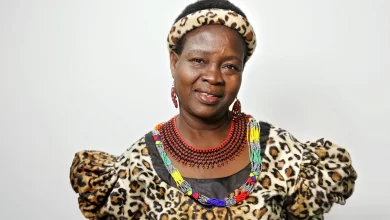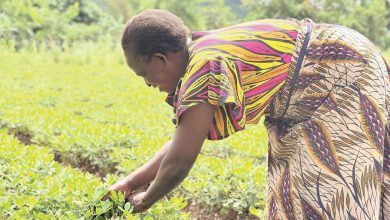How Mzimba woman got a maize mill with K48 000
One Tuesday morning, a women-dominated group gathered around a diesel-fuelled grinder in Samuel Chakwira Village, Traditional Authority Kampingo Sibande in Mzimba District.
They came to mill their maize into flour.

“In my life, I have always had an ambition to own a maize mill, but I had no capital,’’ says Esther Lukhere, 57. “My dream was fuelled by long walks to the nearest maize mill, which was about 12 kilometres away.”
The maize mill has saved the community from the long travels to Mzimba Boma while increasing the entrepreneur’s income.
Lukhere partly sourced the capital from the Climate Smart Enhanced Public Works Programme, also known as M’bwezera Chilengedwe, which involves locals in land conservation, tree planting and protecting forests.
“I joined the initiative in 2023 in Thundwe Catchment Area. I received K48 000 after working for a 24-day cycle. This birthed the maize mill business,’’ she narrates.
Lukhere invested part of her earnings in Dwambizi Comsip to multiply her savings.
“I invested part of the money in a savings and loans group [SLG], where I later borrowed K150 000. I moulded bricks, which I sold for K550 000,’’ she says.
Lukherebought a maize mill engine at K350 000 and repaid K180 000 to the village banking group. She later borrowed K200 000 and moulded more bricks, which she sold at K700 000.
‘‘After selling the bricks, I repaid the loan at K240 000, including interest. The remainder was enough for the maize inlet of the grinding mill, boots, diesel and cement for my dream business,’’She states.
Today, her village and neighbouring communities no longer travel to Mzimba Boma to mill their grain.
‘‘We feel relieved,” says Tionge Mkandawire, from Chinthechi Village. “At last, we no longer struggle to mill our maize.”
Lukhere has employed her son, Solomon, who runs the growing business which generate, about K200 000 monthly enough for basic needs and farm inputs.
“Now we can afford fertiliser, food and some farm workers from the proceeds of the maize mill,” he says. “We plan to construct a brick house for the maize mill.”
Lukhere also plans to construct a modern house roofed with corrugated iron sheets to replace her grass-thatched hut.
Olive Nyalira, desk officer for the government project, says success stories like Lukhere’s show that the initiative is addressing poverty among participants.
‘‘Lukhere could be a symbol of success achieved by many beneficiaries in Mzimba. Some people have constructed houses by using the earnings from the climate-smart programme wisely,’’ says Nyalira.
The social protection programme is designed to uplift the livelihoods of people in poverty.
National Local Government Finance Committee board chairperson Richard Chapweteka says it is pleasing that success stories are on the increase after several years of focused social protection programme.
‘‘People’s livelihoods are being transformed and there is progressive livelihood transformation as households move from poverty to self-sustenance and well-being’’, he says.
M’bwezera Chilengwedwe is part of the Social Support for Resilient Livelihoods Project funded by the World Bank and the Social Protection Multi-Donor Trust Fund with contributions from Usaid, UK’s Foreign, Commonwealth and Development Office, the European Union, Ireland, Norway and Iceland.





